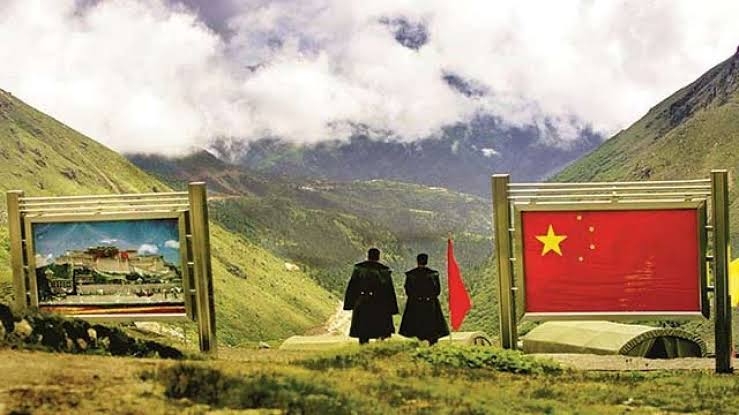India's firm stand against China's strategic deception
China"s actions in claiming territories from its neighbours have caused a lot of trouble. It"s involved in disputes over areas like the South China Sea and borders with India and Bhutan. These disagreements, especially over places like the Senkaku/Diaoyu Islands and Aksai Chin, create a lot of tension between countries. China doesn"t back down, though.

Amidst the backdrop of historical territorial ambitions, China has once again stirred controversy by releasing a fourth list of 30 new names for places along the Line of Actual Control (LAC) in Arunachal Pradesh, India’s northeastern state. This move, reminiscent of its longstanding “Five Finger Policy,” underscores China’s persistent desire to assert control over territories it deems as its own.
Ever since the annexation of Tibet, China has harboured ambitions for Arunachal Pradesh, Nepal, Bhutan, Sikkim, and Ladakh, following Mao Zedong's concept of the Five Finger Policy, aiming to 'liberate' these regions.
Recently, on April 1, China released a fourth list of 30 new names of various places along the Line of Actual Control (LAC) in India's northeastern state of Arunachal Pradesh, which China refers to as Zangnan. The Ministry of External Affairs rejected China's claims, asserting, “Arunachal Pradesh was, is, and will always be an integral part of India.” It’s not something new we’re hearing, as this marks the fourth time of renaming of places.
Responding to these bizarre claims, India has firmly rejected China's attempts to rename places in Arunachal Pradesh. The Ministry of External Affairs (MEA) of India has stated that assigning "invented" names does not alter the reality that Arunachal Pradesh is, has been, and will always be an integral and inalienable part of India.
External Affairs Minister S. Jaishankar said, "If today I change the name of your house, will it become mine? Arunachal Pradesh was, is and will always be a state of India. Changing names does not have an effect."
Previously, in 2017, China had released the initial list of standardised names for six locations in Arunachal Pradesh. This was succeeded by a second list comprising 15 places in 2021, with another list featuring names for 11 additional places released in 2023.
This renaming is part of a broader strategy where China routinely issues statements of outrage. However, these name changes are symbolic and do not change the ground reality or international recognition of the borders.
It uses sneaky tactics like renaming places and moving its military into disputed areas to try and take control. China also tries to sway opinions with its tricky diplomacy and aggressive propaganda. This behaviour worries neighbouring countries like India, leading to ongoing conflicts and occasional flare-ups in the region.
China's stance on the Five Finger policy has undergone a transformation, moving away from explicit declarations to adopting more nuanced strategies. Despite denying the use of the Five Finger policy, China's actions speak otherwise.
The country has shifted aggresively towards areas corresponding to the "five fingers." Although not openly acknowledged as part of the Five Finger Policy, these endeavors effectively extend China's influence in these regions, subtly aligning with the policy's objectives.
Earlier in May 2020, the conflict at Pangong Lake between India and China started over border issues. Both sides accused each other of crossing the Line of Actual Control (LAC) and clashes broke out. The tension peaked when China tried to occupy strategic areas near the lake. India responded by deploying more troops.
After several months of standoff, both countries agreed to pull back troops in February 2021. Though tensions eased, the border dispute remains unresolved, with occasional clashes still happening.
In summary, while China continues to rename places in Arunachal Pradesh as part of its strategy to assert territorial claims, India maintains its stance that Arunachal Pradesh is an integral part of its territory and rejects China's renaming attempts.
Report by
Shomen Chandra
Intern, The Narrative


